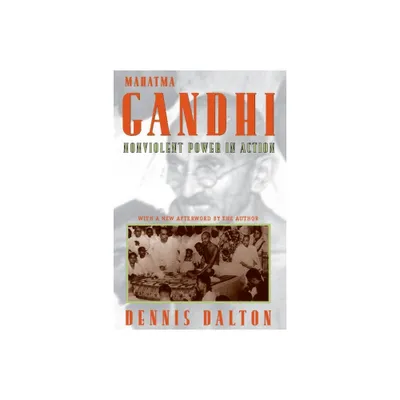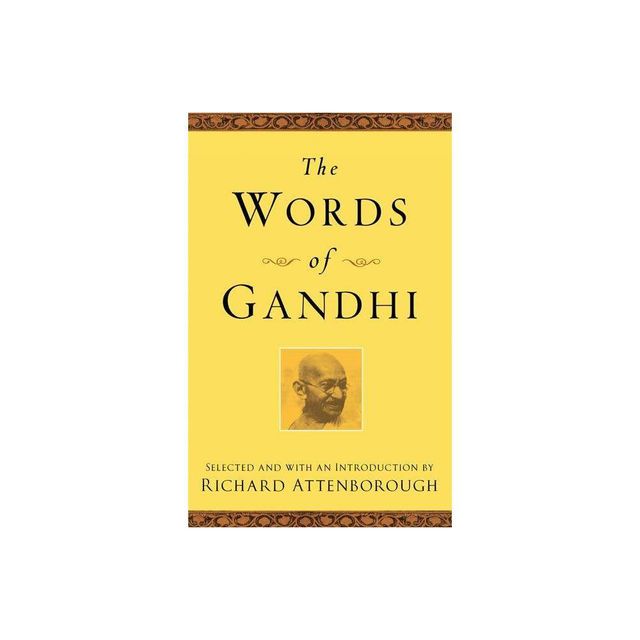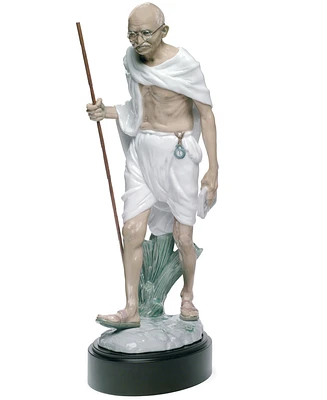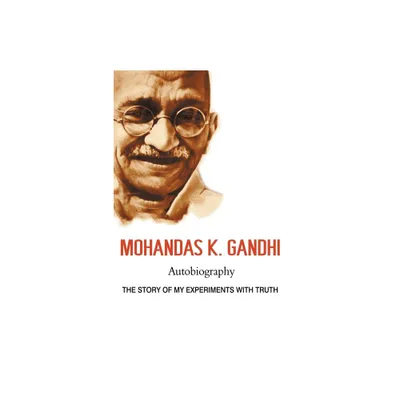Home
Mahatma Gandhi
Loading Inventory...
Barnes and Noble
Mahatma Gandhi
Current price: $8.99


Barnes and Noble
Mahatma Gandhi
Current price: $8.99
Loading Inventory...
Size: OS
*Product Information may vary - to confirm product availability, pricing, and additional information please contact Barnes and Noble
Mahatma Gandhi
The man who would strive to personify humility, nonviolence, and the renunciation of worldly things was born on October 2, 1869, into a family of power and political influence. Mohandas Gandhi's grandfather, uncle, and father each had served as chief ministers for ruling princes of the small Indian state of Porbandar, in the Kathiawar region, midway down the west coast of the Indian subcontinent.
The India that Gandhi grew up in had only recently come under direct British sovereignty, though the two countries had been involved through trade since the middle of the eighteenth century. The British institution that oversaw that commerce, the royally charted but privately owned East India Company, had extraordinary powers. It had gained sway over large stretches of India, setting up de facto local governments and maintaining order with its own armies, which were made up mostly of Indian soldiers known as sepoys.
In 1857, sepoys in northern and central India, unhappy at the way they were being treated by their British overseers, mutinied. They were soon joined by civilians who had their own list of grievances. The British sent in regular troops who, along with soldiers still loyal to the East India Company, managed to suppress the revolt. But the East India Company was finished, dissolved by Queen Victoria.
The man who would strive to personify humility, nonviolence, and the renunciation of worldly things was born on October 2, 1869, into a family of power and political influence. Mohandas Gandhi's grandfather, uncle, and father each had served as chief ministers for ruling princes of the small Indian state of Porbandar, in the Kathiawar region, midway down the west coast of the Indian subcontinent.
The India that Gandhi grew up in had only recently come under direct British sovereignty, though the two countries had been involved through trade since the middle of the eighteenth century. The British institution that oversaw that commerce, the royally charted but privately owned East India Company, had extraordinary powers. It had gained sway over large stretches of India, setting up de facto local governments and maintaining order with its own armies, which were made up mostly of Indian soldiers known as sepoys.
In 1857, sepoys in northern and central India, unhappy at the way they were being treated by their British overseers, mutinied. They were soon joined by civilians who had their own list of grievances. The British sent in regular troops who, along with soldiers still loyal to the East India Company, managed to suppress the revolt. But the East India Company was finished, dissolved by Queen Victoria.


















